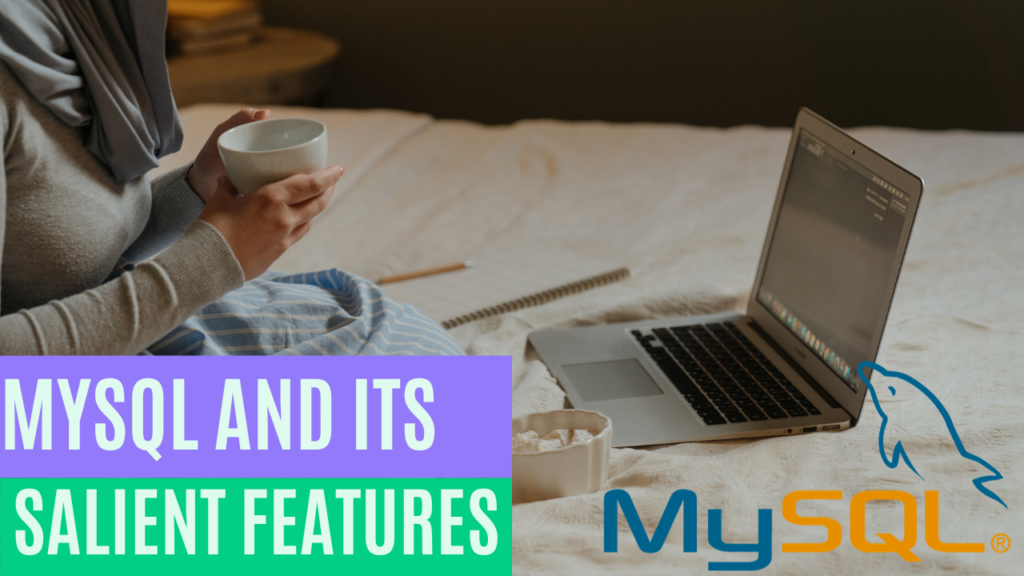MySQL
MySQL is a popular open-source relational database management system (RDBMS) for managing structured data and creating web applications. The Oracle Corporation has acquired the Swedish business MySQL AB, which initially created the software. MySQL is a widely used option among developers worldwide because of its speed, dependability, and simplicity.
History of MySQL
MySQL has a fascinating history that dates back to the mid-1990s. It was created by Michael Widenius, David Axmark, and Allan Larsson, who aimed to build a robust and accessible database system. Over the years, it evolved, and in 2008, Sun Microsystems acquired MySQL AB. Later, in 2010, Oracle Corporation acquired Sun Microsystems, becoming the current owner of MySQL.
Salient Features
The following are its salient features:
Open Source:
MySQL is an open-source software that is free to use, modify, and distribute.
Cross-Platform Compatibility:-
MySQL can run on various platforms like Windows, Linux, macOS, and Unix.
Scalability:
My SQL is highly scalable and can handle large amounts of data and high traffic without jhk compromising.
High Performance:
MySQL is optimized for high performance with features like query caching and indexing that enable fast data retrieval.
Security:
MySQL has advanced security features such as encryption, user authentication, and access control, which protects data from unauthorized access.
Easy to Use:
MySQL has a user-friendly interface and is easy to learn and use.
Replication:
MySQL allows replicating data across multiple servers, ensuring data redundancy and high availability.
Acid Compliant:
MySQL is acid-compliant, which ensures that data transactions are atomic consistent, isolated, and durable.
Community Support:
MySQL has a large and active community of developers who continuously work on improving and enhancing the software.
It is also compatible with many popular programming languages and frameworks, making it easy to integrate with other software.
Conclusion
In conclusion, MySQL is a versatile and reliable relational database management system that has played a significant role in the digital landscape. Its history, key features, and advantages make it a top choice for businesses and developers worldwide. Whether you’re a small startup or a large corporation, MySQL can empower your data management efforts, providing the foundation for efficient and scalable applications.
Advantages of MySQL
Open Source: Being open source means MySQL is free to use, making it a cost-effective choice for businesses.
Community Support: The MySQL community is vast, providing extensive resources, forums, and user support.
Cross-Platform Compatibility: MySQL can run on various operating systems, ensuring flexibility in deployment.
High Performance: Its speed and optimization suit applications with high concurrent user loads.
Customization: MySQL allows for extensive customization, enabling developers to tailor it to their needs.
How MySQL Benefits Businesses
MySQL plays a crucial role in modern business operations:
Data Management: It helps businesses efficiently organize and manage large amounts of data.
E-commerce: MySQL powers numerous e-commerce websites, ensuring seamless transactions and inventory management.
Content Management Systems (CMS): Many popular CMS platforms like WordPress and Joomla rely on MySQL for data storage.
Analytics: MySQL supports data analysis, enabling businesses to gain valuable insights from their data.
Scalability: As businesses grow, MySQL can scale with them, accommodating increased data demands.
F.A.Q.s (Frequently Asked Questions)
Is MySQL suitable for small businesses?
Yes, MySQL is an excellent choice for small businesses due to its cost-effectiveness and scalability.
Can I migrate my data to MySQL from another database system? MySQL provides tools and resources to facilitate data migration from other database systems.
Is MySQL compatible with cloud services?
MySQL can seamlessly integrate with various cloud platforms, offering flexibility and scalability.
What industries benefit the most from MySQL?
MySQL is versatile and can benefit many industries, including e-commerce, healthcare, finance, and more.
How do I ensure the security of my MySQL database?
MySQL offers robust security features such as user authentication and encryption. Regular updates and best practices are also essential for database security.



